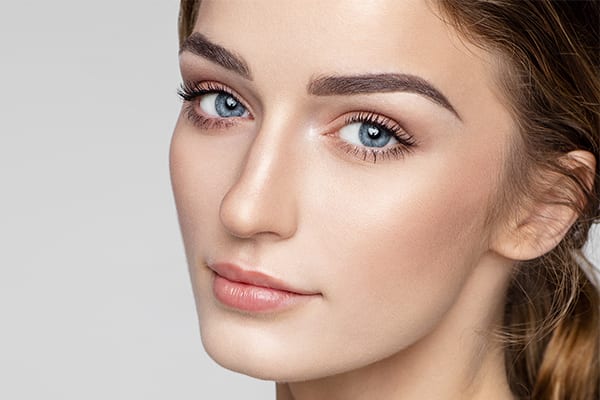
Caring For Vision
As the most delicate sensory organ in the human body, the eyes need to be treated with extreme care. And it's not very difficult to maintain eye-health. Jasmine Pereira outlines some steps that include Diet, Hydration,Exercise, Relaxation, Sunlight and Sleep. Nothing that should make you do anything out of the ordinary but simply stick to the basics
People with vision disorders are susceptible to chronic conditions like hypertension, blood sugar, depression, lower backaches, distorted hearing, and strokes. They are also more likely to suffer injuries due to falls. Thus, it is important to maintain good eye-health, and enhance the body’s overall functioning.
Diet
Since your vision primarily depends on what you eat, the first step towards developing improved eyesight is focusing on your diet. The eyes need a variety of nutrients to function efficiently, and it is vital to consistently incorporate a balanced ratio of vitamins, minerals, and other supplements into your diet.
Antioxidants
Antioxidants like lutein and beta-carotene protect the eyes from harmful rays of the sun. They are primarily found in green and yellow vegetables like broccoli, carrot, spinach, lettuce, and bell peppers. Antioxidants are also found in pumpkins, butternut squash, sweet potatoes, and beetroot. These fruits and vegetables also contain Vitamin A, E, and C, which play a vital role in vision protection.
Vitamin A
Vitamin A, classified as a group of antioxidant compounds, helps maintain a clear cornea. Symptoms of the vitamin’s deficiency start with night blindness, and develop into more adverse conditions like scarring, corneal ulcers, and a total loss of vision. According to researchers, nearly 500,000 malnourished children across the globe turn blind annually, as a result of vitamin A deficiency. Thus, it is important to incorporate the vitamin, as a part of daily consumption. Animal-based foods, rich in the nutrient include, beef, pork and chicken liver, ricotta cheese, and whole milk. However, if you are looking for plant-based or vegan produce, carrot juice, apricot, mango, and other food items rich in the antioxidant are the best options.
Vitamin E
Vitamin E is an antioxidant mainly found in nuts, green fruits and vegetables, and fortified breakfast cereals. They protect eye cells from free radicals, or unstable molecules, responsible for breaking down healthy eye tissue. Vitamin E also minimizes the risk of age-related ailments that impact vision, such as cataracts and prevents degeneration of the central part of the retina. The vitamin’s benefits are backed by numerous researches and studies that prove its significance in enhancing vision. Some sources of vitamin E include -
- Nuts - Peanuts, hazelnuts, and almonds
- Seeds - Sunflower and pumpkin seeds
- Vegetable oils - Corn, wheat germ, safflower, sunflower, soybean, and corn oils
- Greens - Broccoli, spinach, kiwifruit, and avocado
- Meat and Fish - Chicken thigh, red or sockeye salmon, and white tuna (canned in oil)
DHA
Docosahexaenoic acid or DHA, characterized as an omega-3 essential fatty acid, typically found in oily fishes like anchovies, sardines, and salmon. Moreover, the retina contains high levels of DHA, and helps maintain and promote healthy eye function.
Hydration
If you are prone to dry eyes, it is highly likely that you are not drinking enough water throughout the day. However, other factors such as, acne medication, antihypertensive drugs, and nasal decongestants may also cause the eyes to dry out. Dry eye syndrome can lead to related complications, like, increased eye mucus, difficulty in wearing contact lenses, burning and stinging sensation, blurred vision, and eye fatigue.
As a result, drinking the recommended amount (2 liters) of water is vital in promoting good eye health and preventing dehydration. Here are a few more ways of keeping your eyes hydrated -
Take a break from electronic devices like televisions, laptops, video games, and smartphones, every hour. Look away from the screen and often blink to avoid dry and irritated eyes.
- Avoid alcohol, narcotics, and cigarettes.
- Steer clear of cigarette smoke.
- Avoid touching and rubbing your eyes.
- Keep your room moist by using a dehumidifier, especially during winters.
- Frequently wash your eyes and eyelids.
Eye Exercises
Ten minutes of simple eye exercises a day can strengthen eye muscles, enhance visual reaction, and prevent eye-strain. Some exercises include-
- Eye rolls
- Eye press
- Eye massage
- Blinking
Sunlight
The retina has photosensitive cells that connect directly to the brain’s pituitary gland. According to a study published in 2018, in the British Journal of Ophthalmology, these cells play an essential role in human health and physiology. Photosensitive receptors are stimulated through natural sunlight and aid hormone regulation, influence circadian rhythm (crucial for regular sleep patterns), and improve the nervous system through enhanced brain function.
Relax
Research has proven that the colour green is very pleasant and calming to the eyes. So, make sure you take some time out to look at the natural scenery outside, as it is the best way to relax. Also, the greenery will do wonders for your eyes!
Sleep
According to studies, the eye needs at least five hours of sleep, to rejuvenate and replenish the natural supply of tears. As a result, adequate sleep is also very essential for maintaining healthy vision.
Majority of what we perceive and comprehend is influenced by our sense of sight. Ensuring that the eyes are treated with proper care decreases the risk of related health complications and increases the likelihood of improved eyesight. As a result, maintaining eye-health and facilitating the quality of your vision is essential.







